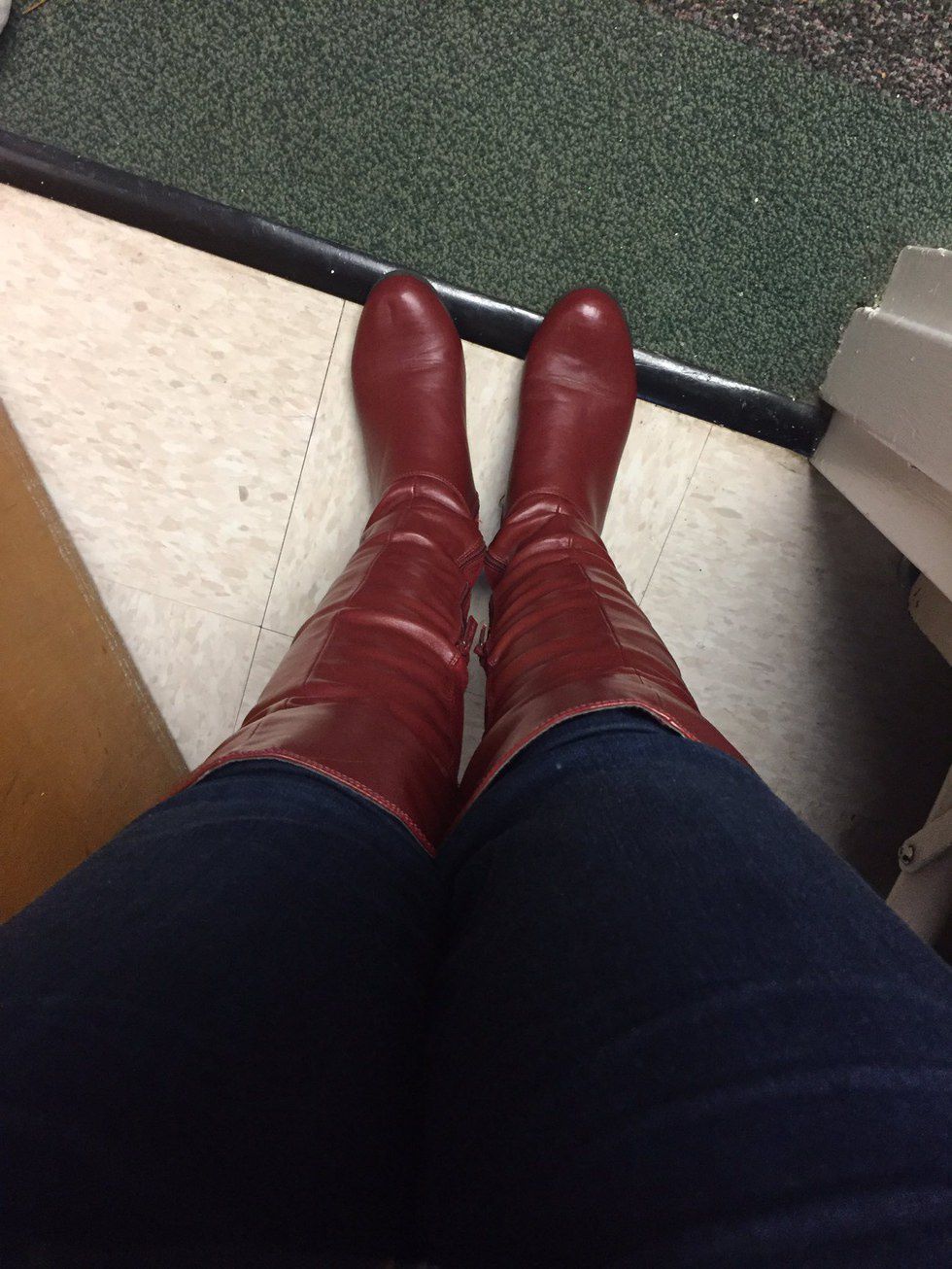This morning, I felt nauseous. I’d woken up to the worst possible news and was ready to give up on our country. Never in my life have I been more ashamed and horrified to be an American. I was (and still am) livid that we would allow fear and promises kept well within the comfort zones of the most privileged people in this country to win. In a small, personal act of defiance, I put on the red boots from my Supergirl costume from last Halloween and walked to my morning class, my back straight and head held as high as I could manage. She wouldn’t quietly accept this. Neither could I. When I got back to my dorm, I tried to take a nap, but was overwhelmed with the need to get up and write this article.
When The CW’s Supergirl started last year, I realized that I found Kara Zor-El to be a far more interesting character than her cousin, Kal-El, better known as the Man of Steel. Both were sent in escape pods from their home planet of Krypton as it was being destroyed - the main difference being that Kal-El was a baby, while Kara was already a preteen (the show explains why Superman appears to be older than her, but I’d be digressing). Yes, being from another planet that you don’t remember but that gave you superhuman abilities is bound to bring on an identity crisis, but Kara remembers Krypton vividly. She does her best to live a normal life as Kara Danvers, but she’s still traumatized from her planet’s death. She lost her parents and was thrown into an entirely different culture that she struggled to understand -- all while she was still a child. Sound familiar?
The show doesn’t try to be subtle about it. Kara is blatantly referred to as a refugee. She didn’t come to Earth to use up our resources or take our jobs, she came because she had no choice. She doesn’t always love her new home, either. At times, she’s furious with her mother for sending her here alone, as well as the planet, for ostracizing her and keeping people like her underground. Nevertheless, she fights endlessly to keep it from harm and to protect those who’ve been swept aside the way she has. At a time when anti-immigrant rhetoric is constantly shoved in our faces, shows like Supergirl remind us why the fearmongering and bigotry we’ve grown so accustomed to goes entirely against what we as Americans claim to value. In the show, aliens receive little sympathy from the general public. Most of them are forced into hiding as humans call for their exile. Supergirl herself, as well as her ally Martian Manhunter (David Harewood), are able to live relatively normal lives only because they can pass for humans. While this gives the two of them (especially Kara, a white woman) a relative advantage compared to aliens who don’t naturally appear human or don’t have the power to shapeshift, they’re still subjected to anti-alien speech from their peers and are expected to agree with it. I, personally, will never experience this in a racial or ethnic context, but I’ve heard “autistic” and “r*tarded” used as insults enough times to have some idea why passing for one of your oppressors doesn’t make life much easier.
Supergirl’s messages regarding diversity don’t stop there. In addition to being an immigrant, Martian Manhunter is the sole survivor of a genocide committed on his home planet. Yet, despite having lost his wife and children in an atrocity reminiscent of the Holocaust and having done nothing but try to adapt and survive here, he’s treated as a monster and a criminal once people learn his identity. Most of the humans on the show (excepting the supporting characters) feel more entitled to the safety of Earth than those who come from anywhere else, and will see them as trying to disturb their normalcy. The second season introduces Maggie Sawyer, a gay Latina detective who empathizes with aliens due to her race and sexuality having clashed with her midwest background. This show is just as campy as The Flash, another show based on a DC comic, and doesn’t tend to take itself too seriously to be enjoyable, but its morals are sadly still necessary in today’s “progressive” society. It seems strange to talk about these issues in terms of literal aliens -- did I mention that a senator in the first season wanted to build a dome over America? -- but the show almost perfectly encapsulates the feeling of being an outsider disguised as something the insiders are more comfortable with. Kara can pass for human, and I can pass for neurotypical, but neither of us are going to be complacent in watching people like us be bullied into silence.
So we’ll zip up our boots and get to work.










































